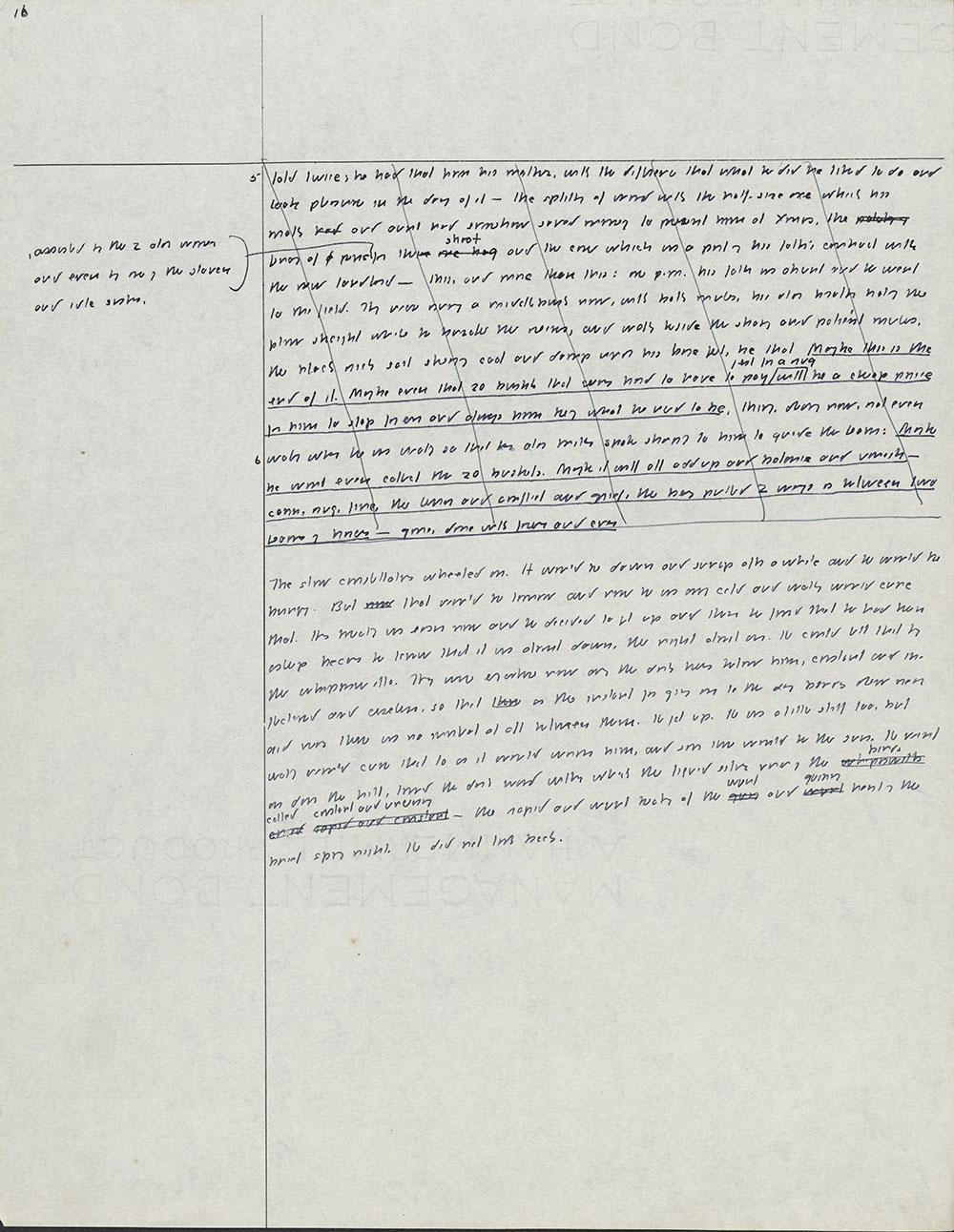TRANSCRIPTION
<told [illegible] he had that from his mother, with the difference that what he did he liked to do and
took pleasure in the doing of it – the splitting of wood with the half-size axe which his
mother <<had>> and aunt had somehow saved money to present him at Xmas, the <<[patch of?]>>
fencing of pens
[margin: , assisted by the 2 older women and even by one of the sloven and idle sisters]
for the<<ir one hog>> shoat and the cow which was a part of his father's contract with
the new landlord – this, and more than this: one p.m. his father was absent and he went
to the field. They were running a middle buster now, with both mules, his older brother holding the
plow straight while he [handled?] the reins, and walking beside the strong and patient mules,
the black rich soil shearing cool and damp upon his bare feet, he thought Maybe this is the
end of it. Maybe even that 20 bushels that seems hard to have to pay jest for a rug will be a cheap price
for him to stop forever and always from being what he used to be, thinking, dreaming now, not even
[watching?] where he was walking so that his older brother spoke sharply to him to guide the team: Maybe
he wont even collect the 20 bushels. May it will all add up and balance and vanish –
corn, rug, fire, the terror and conflict and grief, the boy pulled 2 ways as between two
teams of horses – gone, done with forever and ever.>
The slow constellations wheeled on. It would be dawn and sunup after a while and he would be
hungry. But <now> that would be tomorrow and now he was only cold and walking would cure
that. His breathing was easier now and he decided to get up and then he found that he had been
asleep because he knew that it was almost dawn, the night almost over. He could tell that by
the whippoorwills. They were everywhere now among the dark trees below him, constant and in-
flectioned and ceaseless, so that <there> as the instant for giving over to the day birds drew nearer
and nearer there was no interval at all between them. He got up. He was a little stiff too, but
walking would cure that to as it would warm him, and soon there would be the sun. He went
on down the hill, toward the dark wood within which the liquid silver voices of the <whippoorwills> birds
<cried rapid and constant> called constant and unceasing – the rapid and urgent beating of the <quiring> urgent and <urgent> quiring heart of the
brief spring night. He did not look back.
|


